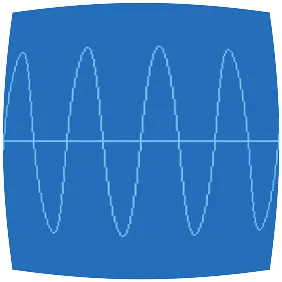The submarine has been making some odd creaking noises, so you ask it to produce a diagnostic report just in case.
Day 3a
export const d3a = ({input = inputs.d3, dbg}: DayProps) => {
const diags = input
.trim()
.split(/\s+/)
.map(s => parseInt(s, 2))
const bitLength = input.trim().search(/\s+/)
const bitCounts = R.times(bitLength, pos =>
R.reduce(diags, (count, n) => count + ((n & (1 << pos)) >> pos), 0),
)
const gamma = R.reduce.indexed(
bitCounts,
(gamma, count, pos) => gamma | (count > diags.length / 2 ? 1 << pos : 0),
0,
) as unknown as number // https://github.com/remeda/remeda/pull/154
const epsilon = gamma ^ ((1 << bitLength) - 1)
dbg({gamma, epsilon})
return `Power consumption: ${gamma * epsilon}`
}
Sample output:
My output:
Day 3b
I wrote this first with for-loops…
export const d3b = ({input = inputs.d3}: DayProps) => {
const diags = input
.trim()
.split(/\s+/)
.map(s => parseInt(s, 2))
const bitLength = input.trim().search(/\s+/)
let oxy = diags
for (let pos = bitLength - 1; oxy.length > 1 && pos >= 0; pos--) {
const {'0': zeros, '1': ones} = R.groupBy(oxy, n => n & (1 << pos) && 1)
oxy = zeros.length > ones.length ? zeros : ones
}
let co2 = diags
for (let pos = bitLength - 1; co2.length > 1 && pos >= 0; pos--) {
const {'0': zeros, '1': ones} = R.groupBy(co2, n => n & (1 << pos) && 1)
co2 = zeros.length > ones.length ? ones : zeros
}
return `Life support rating: ${oxy[0] * co2[0]}`
}
…then replaced the for-loops with reductions…
export const d3b = ({input = inputs.d3}: DayProps) => {
const diags = input
.trim()
.split(/\s+/)
.map(s => parseInt(s, 2))
const bitLength = input.trim().search(/\s+/)
const bitPositions = R.times(bitLength, pos => bitLength - pos - 1)
const oxy = R.reduce(
bitPositions,
(oxy, pos) => {
if (oxy.length <= 1) {
return oxy
}
const {'0': zeros, '1': ones} = R.groupBy(oxy, n => n & (1 << pos) && 1)
return zeros.length > ones.length ? zeros : ones
},
diags,
)
const co2 = R.reduce(
bitPositions,
(co2, pos) => {
if (co2.length <= 1) {
return co2
}
const {'0': zeros, '1': ones} = R.groupBy(co2, n => n & (1 << pos) && 1)
return zeros.length > ones.length ? ones : zeros
},
diags,
)
return `Life support rating: ${oxy[0] * co2[0]}`
}
…then stared unhappily at those horrible tests of oxy.length and
co2.length just to continue running the remainder of the reduction over
bitPositions. Neither JavaScript nor Remeda offer a mechanism like
Clojure’s to terminate early.
So that became the task. Here’s new defitions of reduce and reduce.indexed
with the ability to terminate early using the special reduced return value.
class Reduced<T> extends Error {
value: T
constructor(value: T) {
super()
this.value = value
}
}
const reduced = <T>(x: T) => new Reduced(x)
interface Reducer {
<T, K>(items: T[], fn: (acc: K, item: T) => K | Reduced<K>, initial: K): K
indexed: <T, K>(
items: T[],
fn: (acc: K, item: T, index: number, items: T[]) => K | Reduced<K>,
initial: K,
) => K
}
const reduce: Reducer = (items, fn, initial) => {
try {
return R.reduce(
items,
(...args) => {
const r = fn(...args)
if (r instanceof Reduced) {
throw r
}
return r
},
initial,
)
} catch (e) {
if (e instanceof Reduced) {
return e.value
}
throw e
}
}
reduce.indexed = (items, fn, initial) => {
try {
return R.reduce.indexed(
items,
(...args) => {
const r = fn(...args)
if (r instanceof Reduced) {
throw r
}
return r
},
initial,
) as unknown as ReturnType<typeof fn>
// https://github.com/remeda/remeda/pull/154
} catch (e) {
if (e instanceof Reduced) {
return e.value
}
throw e
}
}
export const d3b = ({input = inputs.d3, dbg}: DayProps) => {
const diags = input
.trim()
.split(/\s+/)
.map(s => parseInt(s, 2))
const bitLength = input.trim().search(/\s+/)
const bitPositions = R.times(bitLength, pos => bitLength - pos - 1)
const oxy = reduce(
bitPositions,
(oxy, pos) => {
const {'0': zeros, '1': ones} = R.groupBy(oxy, n => n & (1 << pos) && 1)
const ret = zeros.length > ones.length ? zeros : ones
return ret.length > 1
? ret
: (dbg(`terminating oxy at bit position ${pos}`), reduced(ret))
},
diags,
)
const co2 = reduce(
bitPositions,
(co2, pos) => {
const {'0': zeros, '1': ones} = R.groupBy(co2, n => n & (1 << pos) && 1)
const ret = zeros.length > ones.length ? ones : zeros
return ret.length > 1
? ret
: (dbg(`terminating co2 at bit position ${pos}`), reduced(ret))
},
diags,
)
return `Life support rating: ${oxy[0] * co2[0]}`
}
Sample output:
My output:
